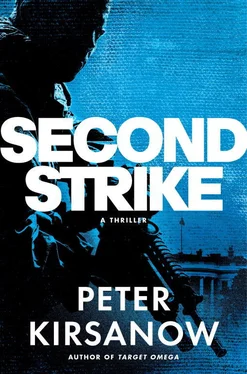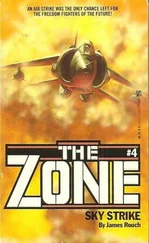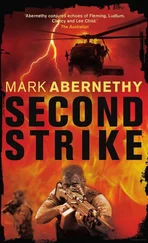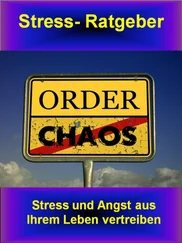“Logistics are not their concern, Taras. They leave such considerations to us, no matter the feasibility. They simply come up with grand schemes and expect us to execute. From the comfort of their conference rooms their plans are infallible. If their schemes do not work, it is because we are incompetent.”
“This does not sound like Mikhailov, Vadim. He is too shrewd. He would understand the need for logistical practicality to maximize the probability of success. This has the fingerprints of Aleksandr Stetchkin all over it.”
“Stetchkin can be blamed for much,” Stepulev said with disgust. “But in fairness, I do not think he was involved in these details. Mikhailov delegated this to Vasiliev. Mikhailov is focused on the main event. And your fail-safe. Are your volunteers ready?”
Bor continued to pace slowly. “My volunteers are not as hardened as yours, but they are motivated. They will be striking a powerful blow for ISIS, an historical one. Their names will be spoken with reverence for generations. And their families will become wealthy.”
Stepulev noted the reservation in his friend’s voice. “But… ?”
“Most of them went to university. They have the attitudes of many of those who go to university.”
Stepulev grinned. “You mean they will defecate their pants at zero hour.”
“Likely. But they will do their jobs. They are believers. In addition to fame, fortune ensures that they will do it. As does the safety of their families.”
Stepulev nodded with understanding. “So they have all been treated to a demonstration of what misfortune could befall their family members should they fail?”
“They have no illusions about what will happen, Vadim.”
“Even if one were to fail, the impact of the others will be more than sufficient, Taras. Have you considered that your fail-safe operation will be far more devastating than the main event?”
“I have,” Bor said, running a hand through his hair. “But we are, as you have noted, on the logistics side of the equation, not the strategic side.”
“It is a big risk.”
“That is an understatement, my friend. They calculated that the EMP strike wouldn’t trigger war. I am not so confident of that this time. Although I concede that they will have presented the West with an almost insuperable conundrum.”
Stepulev’s eyes narrowed. “They have indeed, Taras. Think about it. It is virtually no different from the conundrum presented by the EMP attack. The genius game theorists in the Kremlin have determined that the same calculus applies here.”
“I fully understand, Vadim. They are employing misdirection once again, except this time it will appear as if ISIS, not Iran, has struck America.” Bor stopped pacing. “But I fear game theory is about to crash into reality. I do not believe the Americans will fall for two false-flag operations in a row, especially when the previous one was barely a month ago. And especially when massive numbers of Americans will die.”
“Massive numbers would have died after the EMP strike also—tens of millions.”
Bor shook his head. “Not from the EMP itself—but from the aftermath. No buildings would have been destroyed, no apocalyptic fires would have raged, pulverized bodies would not have littered the streets. Those things will happen this time. And that, Vadim, is all the difference. The Kremlin’s psychologists and game theorists should have spent some time pondering that.”
“But they have,” Stepulev insisted. “Americans have shown time and again they have no stomach for war, let alone appetite. And under no circumstances do they want to fight an equal. With time, they might find traces of our involvement. Especially considering our contemporaneous troop movements. But their politicians will gladly point to ISIS and tell the American people the jihadists were responsible.”
“And vengeance is exacted on ISIS because to engage us would result in world war,” Bor said.
“Exactly.”
“Neatly done,” Bor conceded. “But I remain unconvinced it will be so. As I said, theory is about to meet reality.”
“We have our orders, Taras.”
“Just so. This is not the first time we have questioned the wisdom of such orders.”
“You sound like a cynic. Like a tired soldier.”
“Nothing new.”
“Not true, Taras. You have always been cynical. However, I have never seen you tired. That is new.”
“Tbilisi, Vilnius, Sevastopol, Aleppo, Ramadi, and one hundred places in between. Yes, I am tired.” Something close to a smile appeared on Bor’s face. “But I have yet to reach my prime.”
Stepulev rose and clapped Bor’s shoulder again. “Now, there is a frightening thought.”
The door to the room opened and the rezident ’s aide stuck his head in. “I am to inform you to expect an encrypted call from Moscow in fifteen minutes. You are to take it in the secure facility I showed you earlier.”
“Thank you,” Bor replied. The aide closed the door.
The two operators were silent for several seconds while they contemplated the implications of what was about to occur.
“That will be it,” Stepulev observed. “The order.”
“Where are your volunteers now?”
“An apartment in College Park off Route 1. Denisov is with them. The vests are prepared. They were told to be ready to leave on five minutes’ notice.”
“Get to Leesburg airfield as quickly as possible after dropping off the last volunteer. Do not wait to observe the outcome. Switch vehicles and go. We cannot wait. There will be a period of confusion, of course. But they will mount a furious search almost immediately after the first strike occurs. You need to take off as quickly as possible.”
“You are not coming also, Taras?”
“I will if the main event goes as planned, of course. But I’m the backup for a reason. If I have to execute the fail-safe, you will leave on your own. I will have to leave later. If possible.”
Stepulev nodded. “Where did you move your volunteers?”
“A house in Lorton, a city in northern Virginia along I-95.”
“Do you still plan to simply abandon them if the fail-safe is unnecessary?”
“No.”
“What will you do with them?”
“Eliminate them.”
“All?”
“Yes. They will be a liability.”
“But they know nothing. They believe they are doing this on behalf of the caliphate.”
“They came here expecting to die. I do not want them to be disappointed.”
Stepulev smiled briefly. Then, with a solemn look on his face, he extended his hand to Bor. The assassin grasped it firmly and the two held the grip for several moments. Both came here expecting to die. Each wished the other didn’t have to; each was proud the other was willing.
Bor released his grip and went to receive the order.
MOSCOW,
AUGUST 18, 6:22 P.M. MSK
“General Maximov has confirmed all units are at full readiness,” Vasiliev said.
Yuri Mikhailov nodded, saying nothing. Vasiliev, who was adept at reading his boss’s moods, could discern nothing from his face. The eyes were hooded, masking the shrewd intellect behind them. To some he might appear inebriated, though contrary to his CIA profile, he almost never drank alcohol. The Russian president sat, quiet but formidable, his massive frame overwhelming the chair.
Mikhailov didn’t feel formidable at the moment. He was surprised to find himself nervous, a feeling rare if not absent since his days in the KGB. A man vested with his power and authority had few, if any, occasions to feel truly anxious.
But Mikhailov had a sober appreciation for the scale of the endeavor he was about to initiate, as well as the implications. He was a student of history, and though he was not a military strategist, he was keenly aware of the need for all of the moving parts of the plan to fall into place—otherwise, not just failure, but possibly even disaster would ensue.
Читать дальше












